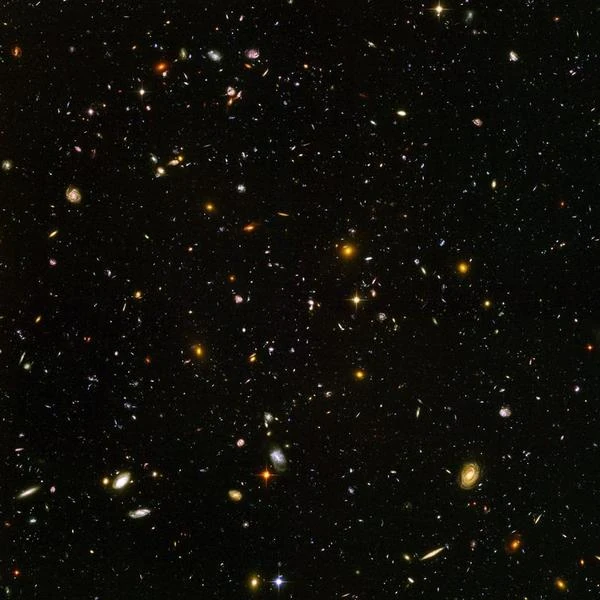
Galaxies from the depths of the universe are direct witnesses to the primordial universe. Observing them allows us to reconstruct the formation of the first structures and cosmic evolution over billions of years.
The study of distant galaxies relies on instruments sensitive to different wavelengths, from visible to infrared. Space telescopes such as the Hubble Space Telescope (1990–present) and the James Webb Space Telescope (2021–present) provide deep images of the sky.
Key methods include spectroscopy to determine the redshift of galaxies, and multi-band photometry to estimate their mass, age, and star formation activity.
Galaxies with a high redshift (>6) are seen as they were less than a billion years after the Big Bang. Their study helps us understand:
N.B.:
The redshift z corresponds to a measurement of spectral shift and allows estimating cosmological distance using the formula \( d \approx \frac{c}{H_0} \times z \) for low values of z, where c is the speed of light and \(H_0\) is the Hubble constant.
| Galaxy Type | Redshift z | Apparent Age (Gyr) | Comment |
|---|---|---|---|
| Local Spiral Galaxies | 0-0.01 | 13.8 | Stable structure, moderate star formation |
| Distant Galaxies | 6-10 | 0.5-1 | High star formation rate, irregular morphologies |
| Ultra-Distant Galaxies | >10 | <0.5 | First generations of stars, possible contribution to reionization |